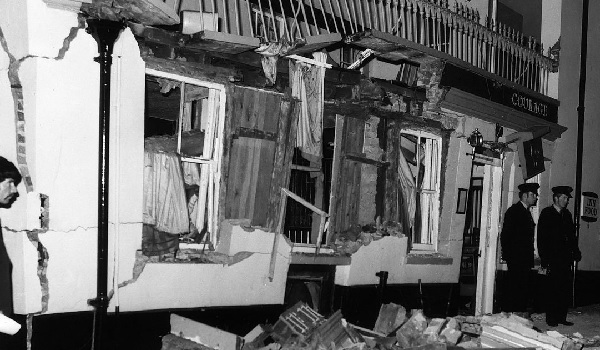Calls for Guildford Four files to be published
The sister of Guilford Four member Gerry Conlon has demanded for secret papers regarding his conviction be released to the public.
The sister of Guilford Four member Gerry Conlon has demanded for secret papers regarding his conviction be released to the public.
Mr Conlon, Paul Michael Hill, Paddy Armstrong and Carole Armstrong were all convicted with bombing a pub in Guildford in 1974, killing five people and injuring 65.
The Guildford Four served 15 years in prison before they were released after their convictions were quashed by the Court of Appeal in 1989.
All made signed confessions then later retracted their statements, claiming they were obtained using threats to their families but all four were found guilty and given life sentences.
Mr Conlon died two years ago at the age of 60, having spent a quarter of his life in prison.
Following a Freedom of Information request, the first six files from Sir John Mays five-year investigation into the bombings were released to the BBC.
These files show persistent attempts to reconvict the four, despite being acquitted, according to Mr Conlons lawyer.
More than 700 files remain closed at The National Archives in Kew and show a release date of January 1, 2020.
Mr Conlons sister Ann McKernan said releasing the documents would reveal the truth.
She said: The government`s guilty of hiding evidence and to this very day they are still hiding the evidence.
“You`ve only got six files out of 700-and-odd. Release the rest of them. Release the rest of the files. Let the public see because surely I`ve nothing to hide and neither has my family.”
In the released papers, one memo headed Conlons Proof quotes a document that suggests Mr Conlon admitted to being a part of the IRA, had intelligence on IRA activities dating back to 1971, associated with leading figures in the IRA and had provided police with a list of IRA members names.
However, a memo written in 1990 talked about the aforementioned intelligence material as “thought to amount to very little”.
In a letter to Sir John May, Richard Barratt, the her majestys chief inspector of constabulary, said: Rightly or wrongly intelligence about Conlon`s involvement in IRA affairs would have influenced detectives in their attitude to him; almost certainly the approach to the case of the DPP [Director of Public Prosecutions] and his staff, as well as prosecuting counsel in the lead-up to his trial, would have been affected by this background knowledge”.
Also among the papers was a memo dated February 1994 which suggested arguments and evidence deployed on behalf of the Guildford Four would be destroyed.


